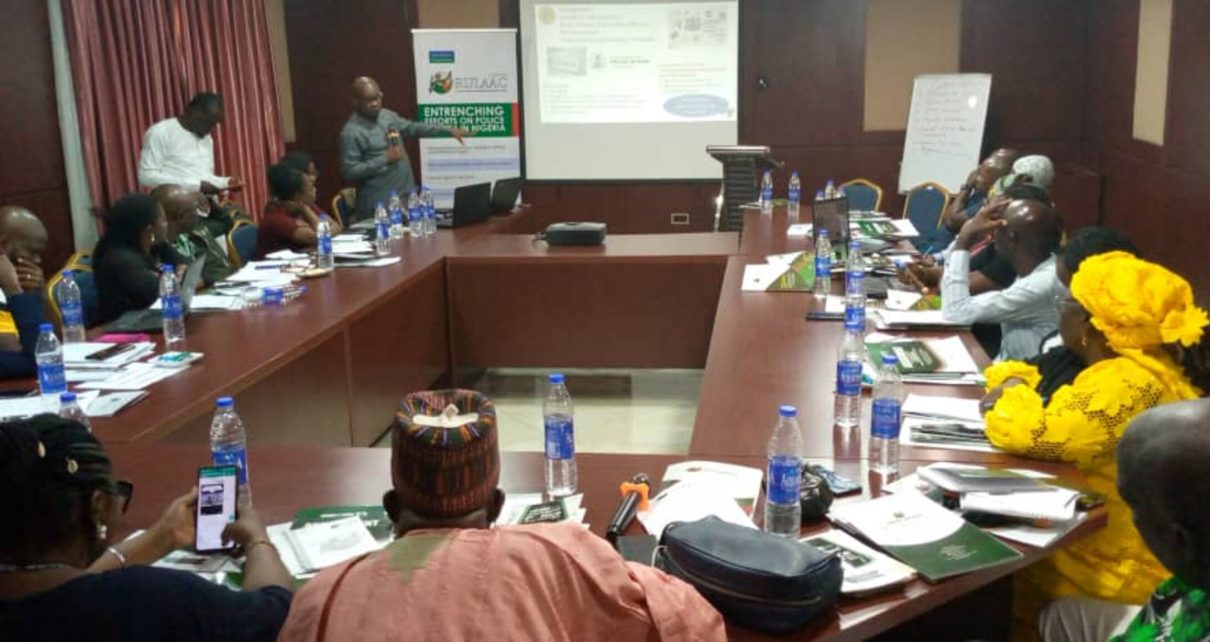To improve professionalism and accountability in police operations, the Rule of Law and Accountability Advocacy Center (RULAAC) has urged for strict adherence to the Police Act.
The request was made on Thursday in Abuja at the National Assessment Performance Meeting of the Nigeria Police Trust Fund by Mr. Okechukwu Nwanguma, Executive Director of RULAAC, a civil society organisation.
Usman Baba, the Inspector-General of Police, should guarantee that the Act is implemented and followed, according to Nwanguma, particularly when it comes to offering legal counsel to people imprisoned in police stations.
Additionally, he suggested that the police chief create an annual policing plan with an inclusive bottom-top budget that incorporates inputs from the Force Headquarters up to the lowest level of the NPF.
The executive director stated that the plan should cover every revenue received by the police, as well as its annual budget, expenditures, and audited financial statements.
“This is needed to put an end to the secrecy that shrouds police budget and financial processes which are needlessly treated as classified information,” he said.
He claims that the police department’s inefficiencies and corruption are fueled by the secrecy surrounding the budget and finances of the department.
“Prioritise discipline within the NPF and support public complaints and internal disciplinary mechanisms such as the NPF Complaints Response Unit which are tools for checking misconduct and rooting out impunity in the police.
“Uphold professionalism, exercise caution and avoid issuing directives to police officers in the field which may be interpreted to mean encouragement to commit abuse of human rights,” Nwanguma added.
A commission of inquiry was requested by the CSO to investigate Imo’s alleged human rights violations and upsurge in insecurity.
“RULAAC calls on the Governor of Imo, Hope Uzodinma to urgently empanel a credible judicial inquiry into the unprecedented rise in insecurity and human rights atrocities by state and non-state actors.
“Unravel the root causes and actual perpetrators of violent criminal activities in Imo including attacks on police personnel and infrastructure across the state with a view to arresting the actual perpetrators.
“Prosecute them under appropriate laws and recommend measures to end insecurity.’’
He claims that RULAAC is a part of the Police Reform Consortium and carries out several initiatives with funding from the MacArthur Foundation.
According to him, the consortium’s main goals were to strengthen accountability and establish a culture of rights-respecting policing in Nigeria.
According to him, RULAAC had set up a CSOs observatory on the implementation of the Police Act and the Police Trust Fund Act (PTF).
He claims that RULAAC and the consortium members visited all six of Nigeria’s geopolitical regions to launch the observatory CSO-PTF Support and Oversight Group.
“The observatory is to act as a catalyst to spur the Police Trust Fund to deliver on its mandate.
“The CSO-PTF Support Groups in the various zones have been engaging in online conversations and carrying out sensitisation to create public awareness across the geo-political zones on the existence of the Police Trust Fund and its mandate.”
The Nigeria Police Trust Fund (NPTF), according to Nwanguma, has only six years left in its life cycle, of which four have already passed.
Therefore, he advised the Fund to approach its duties with greater seriousness.
Nwanguma outlined a few of the duties, which included making good financial investments, training police officers, and providing them with cutting-edge security gear to enhance their training.
“This meeting is therefore convened for us to do a joint assessment of the performance and impact of the NPTF, how transparent and accountable it has been in the management of the funds.
“How far it has or has not achieved its objective of improving police funding and effectiveness in the discharge of their duties,’’ Nwanguma added.


